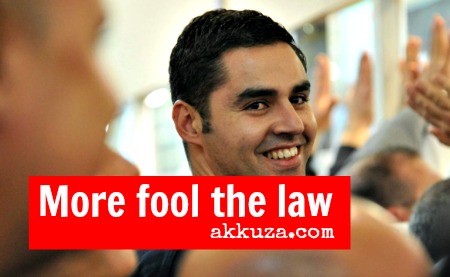An evil soul producing holy witness is like a villain with a smiling cheek, quoth the bard. In matters legal we are often confronted with devils citing scriptures for their purpose and recently there seems to have been quite an upping of the scripture-quoting ante, if you get my drift. The Ian Borg planning permit saga drags on without so much as a whiff of a preventive suspension of duties. PM Muscat was quite clear, in his usual style used whenever clarity and convenience collide, that it was up to Borg to do what he should do. Borg, having adamantly proclaimed his innocence and shown that he does not give two hoots about whatever investigations may result declared firstly that he would proceed with his development. It was only after a sobering comment by Muscat that Borg retracted – on facebook of course.
Muscat’s comments were the most worrying in fact. He was definitely not satisfied with Ombudsman Report on Case no EP 0032 and did not hesitate to openly allege that it was beset with inaccuracies. In fact, not only does the modern day leader of steel not agree with the Ombudsman’s conclusions but also promised to set straight certain “mistakes” that are apparently contained therein. It really does beg the question of why bother listening to the Ombudsman in the first place if you are not going to give any weight to anything he has to say. Well, probably Muscat has been listening to a few scripture-quoting devils who have opted to dabble in the arcane arts of legal interpretation within their self-declared hobby/profession of all that is to do with planning.
What really sticks out whenever you read any of these apologia pro Ian Borg in the press is a quasi-autistic literal-mindedness that belies any knowledge of constitutional responsibility. You see a literal approach to the law can provide some very interesting and confusing results. The Ian Borg Saga is not about any old pesky MEPA application but about the “incorrect application of policies and procedures in processing and determining” a particular application in Rabat.
Legally (and by this I mean also to include the literal application of the law) there is the issue of sticking to the procedural minutiae of an application and whether what might seem to be ridiculous situations – such as a non-owner making an application- are actually allowed by law. There is also a second legal question and that is whether the permit application as filled led to MEPA wrongly acquiescing to the request.
Outside the box of literal-minded application there is an important constitutional element. A member of parliament – a parliamentary secretary to boot – is involved in this application. I say involved but ultimately we can say committed in the same way that in an English breakfast the chicken is involved but the pig is committed. The property that is the subject of this controversy is owned by Ian Borg. He is not denying it. Nobody is. The problem lies that if it should result that Borg, a government secretary, abused of MEPA procedure in order to obtain a go-ahead for this development in a property owned by him he has constitutional obligations that go beyond the mere examination of whose name appears on the application and whether that is legit.
Reading through the Ombudsman’s Report (that could admittedly have been a bit more clear) we find two important issues that tie to the constitutional responsibility of Ian Borg.
- The issue is not whether or not it is permissible for someone to apply on behalf of a third party. The issue is whether, when doing so, it was clear that whoever the applicant was, if he was not the sole owner (or not an owner) then he indicated that he notified the owner of his intention to apply. This is provided for in Section 15 of the application form (under article 68(3) of the Planning Act). The point that the Ombudsman makes in page 6 of his report is that in this particular application the applicants who were not the owners did not indicate as much – they actually “incorrectly stated that they were owners”. This is when the Ombudsman opts for the words “it is strange that Dr Borg chose a somewhat devious method to file the application”. The application contains an untruth. While it is true that you can still apply if you are not the owner, you are meant to do so while declaring that you are not the owner and indicating that the owner has granted his consent. This is what results from the Ombudsman’s description of the case. Given Ian Borg’s parliamentary position the omission assumes constitutional importance.
- The second important point made by the Ombudsman is, to put it simply, that the description given in a previous application that ended up being refused by MEPA was altered in this new application. The result is that notwithstanding that “there was no change in policy in the intervening period between the refusal of PA 1637/12 and the submission of PA 2708/14”, MEPA seems to have requalified the new application in order to get the green light for the application made by somebody for the development on Ian Borg’s property. One defence being made here is that a literal application of the planning policy would lead to the green light being given because the former application had a built up area of less than 50 metres squared while the new application being for a 100 metres squared building would qualify. Now bear with me for a moment but what we are effectively stating is that when a plan for development was for less than 50 metres squared MEPA would object to such development tooth and nail BUT by exploiting a loophole in the law if we present a larger development plan that transforms magically “fresh land” into a backyard in the building suddenly everything is fine and dandy.
Quite frankly the combination of the two issues listed above put Ian Borg in dangerous waters. Even with all the goodwill he may claim to have had there is still definitely more to this than meets the eye and it does the PL no good to hang on behind its young soldier. We’ll have to wait for the Commission against Corruption whose remit is closer to the constitutional factors that I mentioned than the Ombudsman’s.




